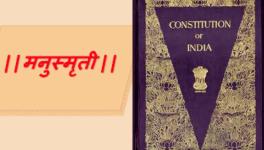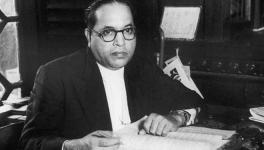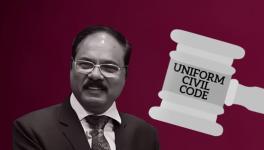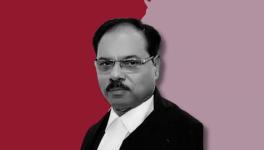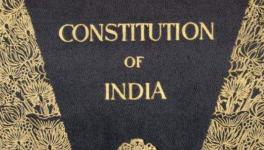Uttarakhand Wants a Uniform Civil Code, Here’s What it Means
One of the first announcements of the newly-formed government in Uttarakhand was that the state would prepare a draft Uniform Civil Code or UCC. State Chief minister Pushkar Singh Dhami has said the draft would be sent to the Centre and, once approved, introduced in the Legislative Assembly.
Though it is still a theoretical idea, a UCC that covers marriage, divorce, adoption, maintenance, inheritance, and succession would ostensibly scrap existing personal laws. However, for all its tall claims that a UCC would empower women and provide gender justice to Muslim women, the BJP seems to be tom-tomming it all by itself. Several legal, social and political experts find the UCC idea divisive, legally and constitutionally half-baked, and geared to achieve nothing but political gains for the ruling party.
Here is what some experts said about the plans for a UCC:
One problem with the plans for a UCC is that it is a complex operation. In the early fifties, Dr DR Ambedkar sought reforms related to marriage, divorce and inheritance in Hindu laws. However, conservative elements opposed the Hindu Code Bill so strongly that he decided to resign. Since the seventies, the conservative sections have openly supported a UCC.
Dr Ranjana Kumari, who heads the Centre for Social Development, says, “In the 1970s and early 1980s, women’s groups had pushed for a UCC to end discrimination in marriage, divorce, inheritance, guardianship and adoption. When the Status of Women Report was prepared in 1975, there was near-unanimity for an all-embracing UCC.” However, Kumari points out, “This unanimity has now ended. Not only are political parties tugging in different directions, women’s groups believe nothing should be done to destroy the heterogeneous nature of Indian society.”
That is why prominent leaders such as Brinda Karat, a Politburo member of the Communist Party of India (Marxist), are unequivocal in criticism of a UCC. Karat believes personal law reforms must not be imposed on any community in India, whether at the State or central level. “A strong voice for reform of personal laws must come from within each community,” says Karat.
Sanjay Hegde, a senior advocate at the Supreme Court, is sceptical of Dhami’s effort too. “At present, the UCC is only a slogan, a hashtag.” After all, a bill or proposal can only be understood once drafted and placed in the public domain. Hedge says, “We already have civil codes that cover the Hindu marriage, divorce, maintenance, etc., but these are central legislations. How can states override central legislation?”
At present, central laws regulate marriage, divorce, succession, inheritance and taxation in India. It means they apply across the country and are not state-specific. Conflicts can arise if a law is introduced in a State that contradicts central legislation.
Therefore, even if Uttarakhand does legislate a UCC, if it contradicts a central law or laws, it will have to seek presidential approval—which means the Centre’s approval. “We don’t have separate state nationalities. Will this law [proposed in Uttarakhand] apply to people living in Uttarakhand but not those living outside the state? If a couple marries in Nainital, and lives in Delhi, which law will they be expected to follow? Without a public draft, a UCC is mere sloganeering,” he says.
Many apprehend that the BJP is pushing for a UCC to target the Muslims, mainly because the law permits bigamy at present, which is practised among some Muslim communities. However, the issue is more complicated. Even Hindus have a wide variety of social traditions and religious rituals across communities and regions. So, as Hegde explains, a Muslim with more than one wife or an easy divorce [triple talaq] is the least of the issues for any UCC when there are more significant complications.
“If we want uniformity in all aspects of civil life, we will have to amend the income tax rules. It would be interesting to see how a state-based UCC deals with the Hindu Undivided Family [HUF] defined in the Income Tax Act, for instance,” says Hegde. HUFs are treated as separate and distinct units of taxation under the Income Tax Act 1961 and face a lower rate of tax liability. “The BJP’s support base consists of small businessmen who, for the purposes of income tax, have more than one account. Such a new law will affect them,” he says.
Guesstimates say that a UCC will attempt to subsume the Hindu Marriage Act, 1955, the Hindu Adoptions and Maintenance Act, 1956, the Special Marriage Act, 1954, the Shariat Act, 1937, and some other central legislations. So, these will theoretically cease to operate in Uttarakhand and—this is the tricky part—it will have to find a new legal system to regulate and adjudicate all these crucial aspects of civil life without clashing with existing central laws. This is far more complicated than it sounds. Further, a UCC will not favour women nor help improve their status, say experts. “This is simply not a gender-specific law,’ Hegde reminds. “Instead, in the name of a uniform code, personal laws are being made vulnerable to constitutional majoritarianism,” he says.
In 1955-56, the Hindu Code Bill was split into three major acts, the Hindu Marriage Act, Hindu Succession Act and the Hindu Adoptions and Maintenance Act. The basic argument that underpins the thrust for a UCC within the present regime is that since these legislations were imposed on the Hindus in the fifties, a common code must now be imposed on Muslims. “Before 1956, even Hindus could have more than one wife,” Hegde says.
The Bharatiya Muslim Mahila Andolan, an NGO that has been fighting for gender justice, is all for personal law reforms but holds that these changes must be in accordance with the beliefs of all citizens, not just Muslims. So, any future civil code must follow the Shariat for Muslims. And, maintains the organisation, it must also keep the sensitivities and concerns of all other social groups in mind.
Again, it is crucial to remember that the differences in India are not just in the religious realm. Rebecca John, a senior advocate at the Supreme Court, elaborates that Article 44 of the Constitution mentions the Uniform Civil Code as a Directive Principle of State Policy. “Nevertheless it is a fallacy to think that the Hindus have a common law and that it is the existing law of North India which must be codified into a UCC,” she says. “Talk about a UCC is part of the bullying of North Indians against other Hindu communities,” she says. John explains, “The Hindu Marriage Act, 1955, and Hindu Succession Act, 1956, are based on practices in North India, which received primacy over the eastern and southern states.” In other words, there are multiple social, cultural and religious practices within religions, and no community would wish to be subsumed under the writ of another group.
For example, the saptapadi ritual is followed mainly in North Indian weddings, wherein marriage is deemed complete and binding once the couple has taken a certain number of steps around a ritual fire. However, in South India, suyamariyadhai and seerthiruththa rituals are followed, where marriage is valid once a couple declares they are getting married, once they have exchanged garlands or rings, or once the bridegroom has tied a thali around the neck of the bride. Similarly, marriage takes a contractual form in Muslim law, with different practices for Shia and Sunni communities and wide regional variations.
Uttarakhand Congress leader Sujata Paul believes the UCC has been raised in the state as a bogey because of the Rashtriya Swayamsevak Sangh’s Hindutva ideology. Its timing is especially suspect since elections are due in Jammu and Kashmir. “The BJP wants to create a buzz around the UCC to use it as a whip against [rival] political parties in Jammu and Kashmir and appeal to Hindu voters in Jammu. A centrist agenda dictated by the RSS is being pushed in Uttarakhand, which has no history of communalisation,” she says.
Paul says the question is not just whether the UCC will target the Muslims—it is that its provisions may be deployed against tribal populations in Uttarakhand who have unique cultural practices in marriage, divorce, etc. “There are so many pressing issues in our state, including a huge scandal regarding key positions in district co-operative banks being filled with relatives of politicians. Instead, the chief minister is raising the UCC bogey.”
In fact, a committee to look into the contours of a UCC is yet to be appointed in Uttarakhand. This, too, makes the idea and its timing appear like a publicity stunt. Citing “sensitivities involved” and the need for an “in-depth study”, Union Minister Kiren Rijiju had told Parliament last year that the Law Commission of India was examining the UCC issue and the central government awaited its recommendations. In 2018, the Law Commission held a UCC unnecessary and suggested amending the existing family laws to address discrimination and inequalities.
It noted, “While the diversity of Indian culture can and should be celebrated, specific groups or weaker sections must not be dis-privileged. Resolution of this conflict does not mean abolition of difference. This commission has therefore dealt with laws that are discriminatory, rather than providing a uniform civil code, which is neither necessary nor desirable at this stage.” This could explain why the Centre has desisted from pushing a nationwide UCC so far, even though it asked the Law Commission to examine the issue afresh.
Many would cite Goa to justify a UCC for India. However, Goa has had a uniform civil code since before it became a part of the Union of India in December 1961, four centuries after Portuguese colonial rule. Interestingly, some say that a UCC falls under the Concurrent List of the Seventh Schedule of the Constitution of India. Subjects such as adoption, marriage, divorce, joint families, etc., are on the concurrent list. It, however, does not mean States can enact new legislations like a UCC in these domains. It only allows states to amend the national legislation on these subjects to suit local contexts. In other words, a UCC falls within the ambit of parliamentary legislation, and the Centre itself has made this clear.
The author is a freelance journalist. The views are personal.
Get the latest reports & analysis with people's perspective on Protests, movements & deep analytical videos, discussions of the current affairs in your Telegram app. Subscribe to NewsClick's Telegram channel & get Real-Time updates on stories, as they get published on our website.









